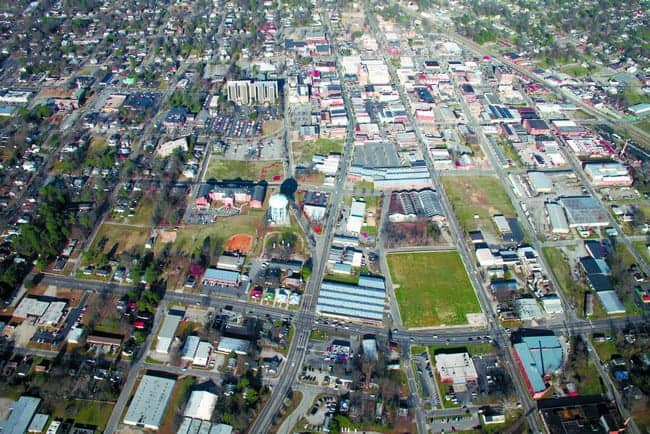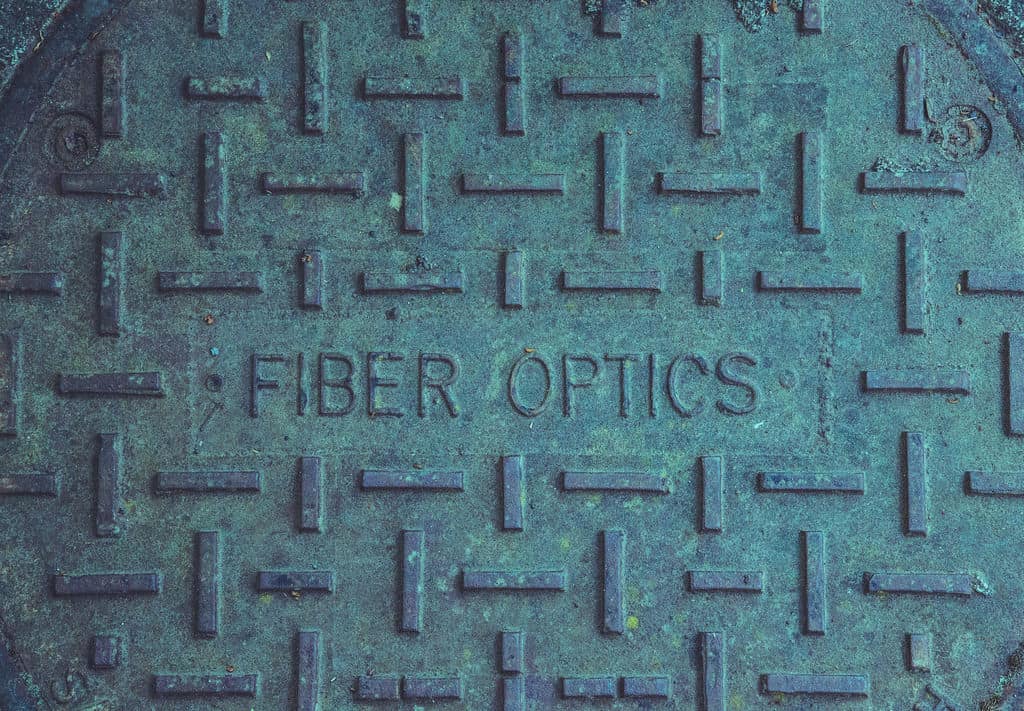25 State Laws that Protect Corporate Interests and Impede Competition
Disclaimer: this report has been updated.
For updated information, please see our 2018 Municipal Broadband State Laws Report.
34 million Americans don’t have access to broadband Internet.
In fact, 62 percent of those who can get broadband only have one provider to “choose” from.
This means that, for the majority of the US, our only option is to pay up… or go without.
Some municipalities have taken it upon themselves to fix this problem by building public-owned “municipal broadband” networks. Cities like Chattanooga, TN and Sandy, OR made headlines by providing gigabit-speed Internet at a low cost to their residents. As of 2016, over 185 communities nationwide have followed suit with some form of public broadband service.
Needless to say, incumbent Internet Service Providers (ISPs) don’t like this idea, and have been lobbying at the state level for years to limit municipal broadband. Telecom lobbyists spent over $90 Million last year alone , cloaking ISP interests in complex laws with dramatic titles like “An act to protect jobs and investment by regulating local government competition with private business.” (No, that is not a joke — and in spite of efforts by anti-lobbying law groups, it passed.)

For residents of the 19 states where municipal broadband has been effectively outlawed thanks to ISP lobbying efforts, the end result is fewer options, higher prices, and slower speeds.
Share with your friends
States with laws blocking municipal broadband
Laws vary from state to state. In the guide below we’ve categorized each state by the 5 most common legal barriers to municipal broadband. Interactive maps are also included, to give an overall snapshot of broadband coverage in each area by public and private providers alike.
Also included is a list of specific laws, alphabetical by state.
- Bureaucratic Barriers: Michigan, North Carolina, South Carolina, Tennessee, Virginia, Utah, and Wisconsin.
- No Direct Sale Requirements: Arkansas, Missouri, Nebraska, Pennsylvania, Texas, and Washington.
- Referendum or Vote Dependancy: Alabama, Colorado, Louisiana, and Minnesota.
- Population Caps: Nevada.
- Excessive Taxes: Florida.
Bureaucratic Barriers
One of the most common legal tricks for blocking municipal broadband is to simply surround it with small laws that add up to a giant headache. Here’s a breakdown of the specific regulations for each state facing bureaucratic barriers:
Michigan
Michigan Broadband Coverage
Michigan requires local governments and cities to produce a Request for Proposal(RFP) which can only be actualized if they receive less than three qualified bids.
Not more than 3 — less than 3 bids.
By requiring an RFP, municipalities are essentially forced to use the same procedures as a for-profit business, limiting many of their potential advantages.
North Carolina
North Carolina Broadband Coverage
North Carolina has some of the toughest anti-municipal broadband laws in the country, squeezing in referendums, financing barriers, and retail pricing roadblocks.
Municipal telecom providers are also required to make commercially sensitive information available to incumbent providers on request — and simultaneously required to inflate retail pricing with phantom costs to prevent competition with the private sector.
Some of these roadblocks were preempted in 2015 by FCC, but the decision was reversed in August 2016 by a federal court of appeals, which determined FCC did not have authority to preempt state laws that didn’t bar municipal broadband outright.
Update: an investigative report by the New York Times highlights the human drama behind broadband bureaucracy, as businesses that rely on reliable broadband in rural areas are forced to shut down or relocate.
South Carolina
South Carolina Broadband Coverage
South Carolina’s biggest barrier to municipal broadband is poorly worded regulation that invites endless legal stalling at the proposal stage. Phantom costs and other requirements force municipal networks to function in a similar manner to private companies, albeit with additional taxes and paperwork.
Tennessee
Tennessee Broadband Coverage
Tennessee may be home to Chattanooga, the “poster child” of municipal broadband, but that doesn’t mean the climate is favorable for public-owned Internet.
On the contrary, the city’s Electric Power Board (EPB) was sued by multiple major ISPs when their plan to implement municipal broadband went public — and only won the court cases because they were already installing fiber infrastructure for a smart power grid, overcoming objections to the up-front cost.
Municipal broadband in Tennessee is subject to a variety of hearings and voting procedures not applicable to private companies. Municipalities that don’t operate electric utilities are limited to “historically unserved areas,” and can only provide service through partnerships with private companies.
Utah
Utah Broadband Coverage
Utah applies many of the same procedural and accounting roadblocks outlined above, although some of these restrictions are lifted for municipal broadband networks operating under wholesale-only models. As pointed out by Baller Law Group, wholesale-model networks are virtually impossible to justify in the first place.
Virginia
Virginia Broadband Coverage
Virginia municipalities are barred from providing subsidized service, and retail rates are inflated with “phantom costs” to match private sector pricing.
Municipal providers are also prohibited from providing triple-play service, as cable networks are required to be profitable within one year — a virtually impossible feat, given the high cost of installing infrastructure.
Wisconsin
Wisconsin Broadband Coverage
Wisconsin features minimum prices for municipal broadband service, regardless of community need or existing private sector options. Extensive feasibility studies and public hearings are also required before any sort of public-owned broadband, telecom or communication service can be made available.
No Direct Sale
“No direct sale” regulations effectively outlaw municipal broadband service by making it impossible for public providers to sell Internet packages.
While it’s not technically illegal for a municipality to create their own network, the states below have made it illegal for customers to purchase access to that network — which would be necessary to repay any bonds or city budget used to finance installation.
Arkansas
Arkansas Broadband Coverage
Arkansas allows municipal electric utilities to provide communication services but prohibits local exchange services, making municipal broadband largely unfeasible.
Missouri
Missouri Broadband Coverage
Municipal networks in Missouri are barred from selling or leasing telecom services, whether to residents or other providers.
The only exceptions are for education, emergency, health care, and internal purposes.
Nebraska
Nebraska Broadband Coverage
In Nebraska, only public power utilities can provide broadband or telecom services — however, they are barred from selling service packages on a retail basis.
Sale of dark fiber is also limited, and cannot be sold or leased for prices lower than those of an incumbent provider in the same market.
Pennsylvania
Pennsylvania Broadband Coverage
Pennsylvania municipal networks can only provide broadband services retail if private providers do not accommodate a request for service by that municipality within 14 months.
In judging whether or not a community is being served, Pennsylvania only considers speed — price, Quality of Service(QoS), coverage, type of connection, and other factors are judged irrelevant. This is good for a private monopoly because so long as they meet the speed a municipality requests, they can charge any retail price without fear of competition.
Texas
Texas Broadband Coverage
Texas bars municipal broadband networks and municipal electric utilities from offering telecom services, both directly and through partnerships with private providers.
Washington
Washington Broadband Coverage
Washington prohibits public utility district from providing direct telecom services.
Referendum or Vote
Another common method of holding municipal broadband is to require excessive voting procedures, both among the residential population and at the local and state government level.
Alabama
Alabama Broadband Coverage
Alabama allows municipal networks, but requires referendums before they can be installed. Public providers are barred from using local taxes or other funds for network expenses until the network is self-sustaining.
Additionally, self-sustainability requirements make industry marketing practices like bundling impractical.
Colorado
Colorado Broadband Coverage
Colorado requires extensive referendums before installing a municipal broadband network, and such networks are only permitted if a community has been outright refused service by incumbent providers.
Louisiana
Municipalities in Louisiana are required to hold extensive hearings before providing any sort of telecommunication service.
If a municipal broadband network is approved, it is required to impute to itself various additional costs equivalent to those an incumbent provider would pay.
Minnesota
Minnesota Broadband Coverage
Minnesota requires a super-majority of 65% of voters to provide any sort of communications service, including municipal broadband.
Population Caps
Nevada
Nevada blocks municipal broadband by simply placing a cap on the size of community permitted to build their own networks.
Municipalities with more than 25,000 residents and counties with more than 50,000 residents are barred from providing telecom services of any sort.
While this law at least allows municipal broadband to serve small, lower-income communities that stand to benefit the most, it ignores the fact that dense urban areas are often equally underserved.
Excessive Taxes
Florida
Florida has some of the strictest municipal broadband regulation in the US.
First, Florida is one of the few states that imposes unique (and high) taxes on municipal telecommunication services. Such services are also required to break even within four years.
Second, high-cost projects like FTTH (Fiber To The Home) are subjected to extreme bureaucratic vetting procedures and requirements.
In the case of FTTH, municipalities are required to hold two public hearings and prove they can pay back any debt incurred within four years (which is virtually impossible, given the cost of fiber, no matter the installer.)
Specific State Laws
Editorial Note: While there are several articles circulating that there are 20 states against municipal broadband, we decided to leave California off the list because their laws only limit community service districts instead of municipalities.
Many thanks to Baller Herbst Law Group and Muninetworks.org for their analysis into this issue.
Common misconceptions about Municipal Broadband
1. Municipal broadband isn’t a taxpayer burden
A common argument against municipal broadband is that it’s a wasteful use of taxpayer dollars. This would be a fair argument… if taxpayer dollars were frequently used to fund municipal broadband networks. In practice, networks are usually funded through the sale of bonds to private investors, who are repaid by network revenue.
In an interview with Ars Technica, Christopher Mitchell of the Institute for Local Self-Reliance suggested that “If anything, taxpayer dollars are better spent by no longer overpaying for [broadband] service to schools, fire departments, and the like.”
Schools and other public institutions are frequently underserved and overcharged by private providers, with only 59 percent of public schools meeting the short-term connectivity goal of “100Mbps per 1,000 users” set by the FCC.
2. Municipal broadband isn’t illegal; it’s just really, really difficult.

Coverage of the battle between the FCC, state governments, and cable lobbyists often paints the issue more black-and-white than it actually is.
In most cases, municipal broadband isn’t outlawed directly. If it was, the FCC would have no problem preempting state laws to ensure broadband deployment in the “reasonable and timely” fashion outlined in the annual FCC Broadband Progress Report.
Small clauses that make municipal broadband impractical are hard to fight in court, even though the net effect of hundreds of tiny clauses adds up to the same effect: broadband monopoly by a small handful of private sector ISPs.
Residents ultimately have little say when it comes to Internet access
The FCC’s recent court loss to the state of Tennessee may seem like a loss for municipal broadband, but the real question at stake in the struggle between the FCC and state governments is this: “who has the right to decide what municipalities can and can’t do?”

If you ask municipalities, the answer will be “we do.”
If you ask state governments (or the cable lobbyists keeping the courts busy), you’ll get the same answer.
The FCC, naturally, also believes that they should be calling the shots on how state laws affect broadband deployment in the US as a whole.
Share with your friends
The question we should really be asking is: “how can we give the residents affected by these court cases a fair say in their local infrastructure decisions?”
As it stands, Internet users are more like crossfire casualties than active participants in the Broadband Wars. Without public involvement in the question of municipal broadband, the “digital divide” will only continue to grow.

